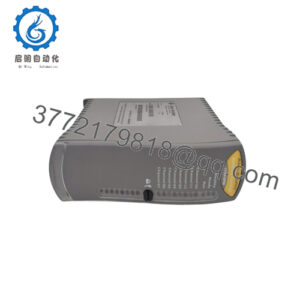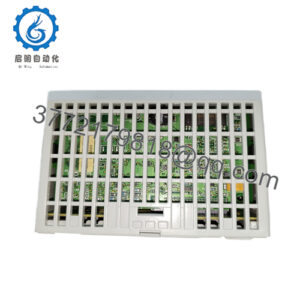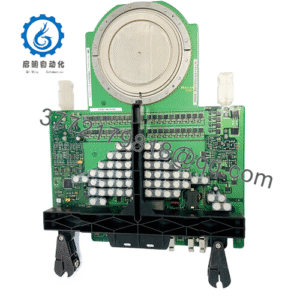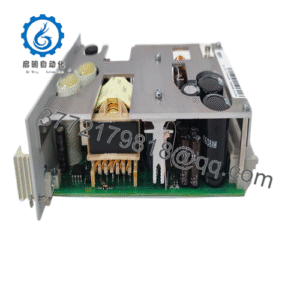Description
Product Model: ALSTOM MAE99-04
Product Brand: ALSTOM
Product Series: MAE Series
Product Features:
- Precision control module for ALSTOM turbine and process systems
- High reliability in continuous industrial operation
- Designed for compatibility with MAE automation architectures
- Excellent stability and diagnostics for long-term field use
- MAE99-04
Product Role & System Fit
The ALSTOM MAE99-04 serves as a core element in ALSTOM’s automation and turbine control platforms. Built for demanding energy and process environments, it operates as a high-precision control module within distributed control and turbine regulation systems. In a typical configuration, this unit processes critical feedback from field sensors, computes logic based on turbine speed or load conditions, and drives output commands to actuators or valve assemblies.
The MAE Series was engineered to deliver deterministic control — meaning every millisecond of response time is predictable and repeatable. The ALSTOM MAE99-04 plays a pivotal role in ensuring that, offering both computational stability and secure communication with other modules in the system rack.
When integrated into ALSTOM’s larger automation suite, the module communicates over proprietary or standardized protocols, synchronizing seamlessly with protection relays, governor systems, and supervisory control layers. Whether in gas turbine governors or steam turbine excitation systems, it ensures steady-state operation and precise regulation, even under variable load or transient conditions.
Because of its robust firmware and hardware design, the ALSTOM MAE99-04 often acts as the “brains” behind local control functions — effectively bridging field instrumentation and supervisory DCS interfaces. Engineers appreciate its modular nature, which allows for rapid replacement or upgrade without disrupting system architecture.
Applications & Industry Context
Few industrial environments demand as much precision and reliability as power generation facilities. Gas and steam turbines, hydroelectric control systems, and combined-cycle plants all rely on components like the ALSTOM MAE99-04 to maintain stability and efficiency.
In gas turbine control applications, this module handles input from speed pickups, temperature transmitters, and pressure sensors. It executes control algorithms to maintain turbine speed, coordinate fuel flow, and protect against overspeed conditions. In steam turbines, it supports steam valve modulation and synchronization during generator coupling.
ALSTOM has long been recognized for its contributions to the power and energy sectors. The MAE99-04 continues that legacy, offering a dependable solution for operators who can’t afford uncertainty. Its architecture is particularly suited for retrofits, allowing older ALSTOM installations to be modernized without replacing the entire control cabinet or wiring infrastructure.
Beyond energy, the ALSTOM MAE99-04 finds applications in process industries that require deterministic, safety-oriented automation — such as large-scale chemical production, water treatment, and marine propulsion systems. In each of these, the module functions as a stable, field-proven control component capable of sustaining continuous operation for years with minimal maintenance.
Technical Features & Benefits
At its heart, the ALSTOM MAE99-04 is designed for both performance and endurance. The hardware employs industrial-grade components rated for wide temperature tolerance and vibration resistance, ensuring it can operate in turbine enclosures or control panels exposed to harsh ambient conditions.
Key advantages include:
- High computational reliability: Its embedded processor executes real-time control logic with deterministic timing, ensuring the turbine’s mechanical responses remain synchronized with digital commands.
- Robust electrical design: Each I/O interface is galvanically isolated, minimizing risks from ground loops or transient surges — a must for generator and turbine applications.
- Integrated diagnostics: Built-in self-test and LED indicators allow engineers to monitor module health instantly. Fault codes and diagnostic logs can be accessed via ALSTOM’s configuration tools, streamlining troubleshooting.
- Hot-swappable capability: The ALSTOM MAE99-04 can be replaced without shutting down the entire rack, a huge advantage during maintenance operations where downtime is costly.
Another often-overlooked strength is its long-term firmware stability. ALSTOM modules are renowned for backward compatibility; new firmware versions can operate with legacy systems without forcing major software rewrites. This means the ALSTOM MAE99-04 can serve as a drop-in replacement for earlier MAE-series boards, protecting investments in existing infrastructure.
The result is a module that not only excels in performance but also minimizes total cost of ownership — fewer replacements, faster servicing, and dependable operation throughout its life cycle.
Technical Specifications
| Specification | Description |
|---|---|
| Model | ALSTOM MAE99-04 |
| Series | MAE Series |
| Function | Control and processing module |
| Voltage Supply | 24 V DC nominal |
| Operating Temperature | 0 °C to +60 °C |
| Signal Interfaces | Digital and analog channels via backplane |
| Communication | ALSTOM proprietary / standard industrial protocols |
| Diagnostics | LED status indicators, onboard self-test |
| Mounting | Rack-mounted, modular slot design |
| Processor Type | Embedded industrial microcontroller |
| Response Time | < 10 ms typical |
| Certifications | CE, IEC standards for industrial environments |
Installation & Maintenance Insights
Field engineers who’ve worked with the ALSTOM MAE99-04 often describe installation as “effortless yet precise.” The module’s backplane connector is keyed to prevent incorrect insertion, and its compact footprint allows for dense cabinet layouts without thermal issues.
Before installation, ensure the system power is isolated, and ESD precautions are taken — the control electronics are sensitive to static discharge. Once installed, configuration through ALSTOM’s engineering software is straightforward, allowing users to load or clone parameters from existing modules.
Maintenance is generally limited to periodic inspections and environmental checks. It’s good practice to verify connector tightness and clean dust buildup in turbine control cabinets every six months. Since the ALSTOM MAE99-04 provides on-board diagnostics, most potential issues — from power supply irregularities to communication faults — can be detected and resolved before they escalate.
One feature engineers appreciate is its hot-swap capability. This means a faulty module can be replaced while the system remains operational, minimizing downtime during scheduled maintenance windows. Combined with clear LED fault indications, this makes field servicing much faster compared to many third-party control platforms.

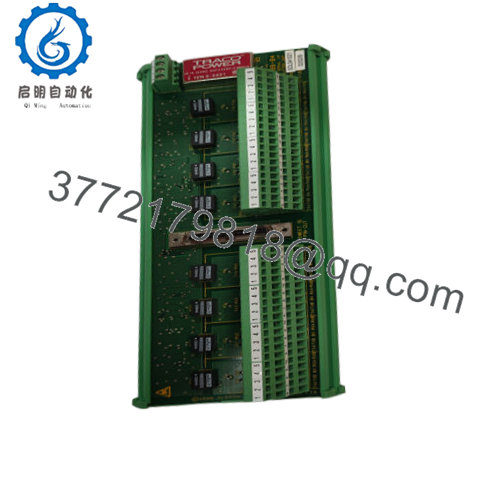
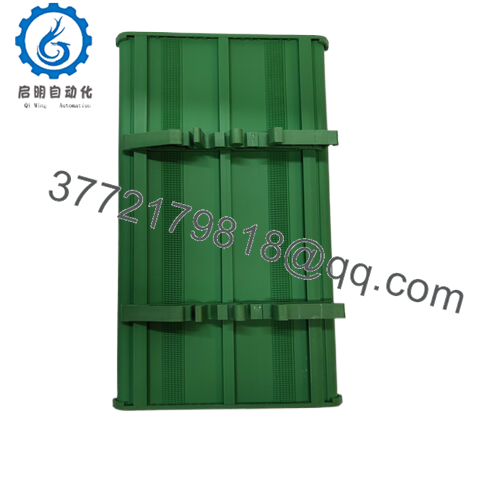
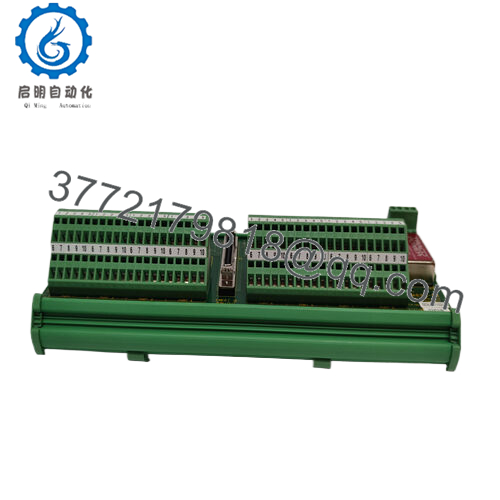
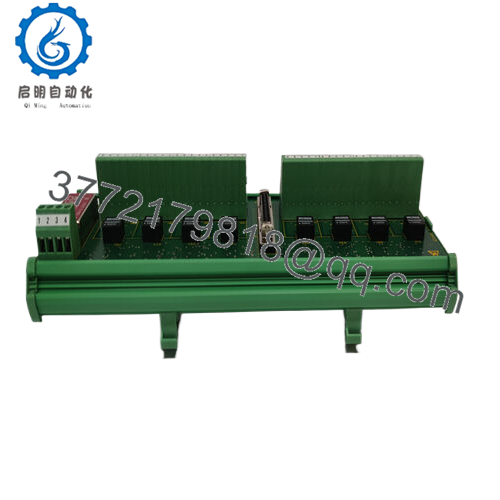
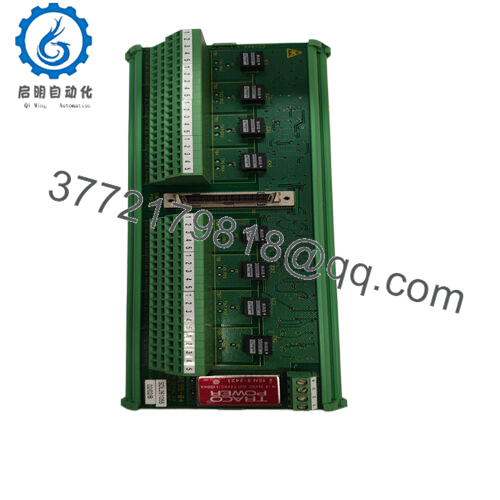
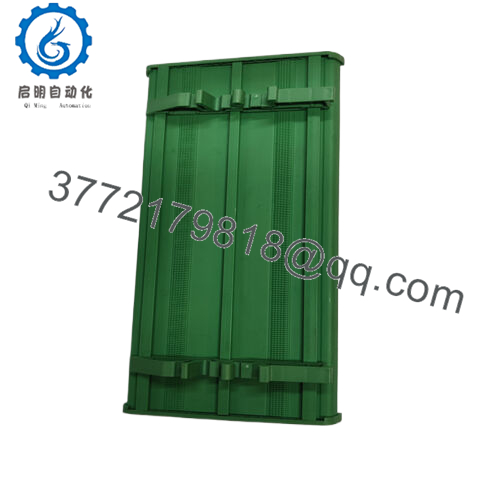
 WhatsApp: +86 16626708626
WhatsApp: +86 16626708626 Email:
Email:  Phone: +86 16626708626
Phone: +86 16626708626